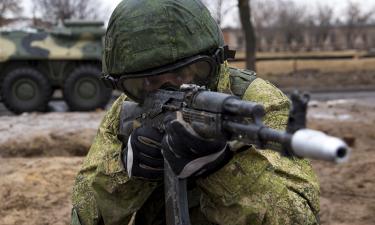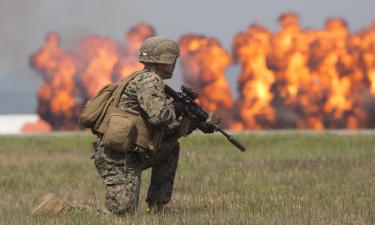Experts suggest that Jemaah Islamiyah should be stopped
Although no one has claimed responsibility for the attacks on the Indonesian island of Bali, which killed 22 people, most believe it bears the hallmark of Jemaah Islamiyah (JI).
From the point of view of Rohan Guanaratna, terrorism expert, it is the only group with "the intention and the capability" to carry out such an attack. He describes Indonesia's current counter-terrorism strategy as "flawed" and in need of "radical changes" warning that if this is not implemented "Indonesia will suffer from more attacks."
"JI is still a very capable group," said Gunaratna, head of terrorism research at Singapore's Institute of Defence and Strategic Studies. "It still maintains and trains members who can mount further attacks," he said.
A crucial problem in Indonesia, according to Gunaratna, is that JI is a legal organisation. "Anyone can belong to the group, or give funds and they will not be charged," he said. Gunaratna, who is also the author of "Inside al-Qaeda: Global Network of Terror," said that the group is still active in southern Philippines where it gets training. It receives its funding from the al-Qaeda terrorist network, primarily from the Saudi branch of the group, and enjoys enough support within Indonesia to continue its activities.
The three bombs exploded within minutes of each other in the tourist areas of Kuta and Jimbaran on Bali on Saturday night. The blasts came nearly three years after bombs in Bali nightclubs killed 202 people, including many westerners who were holidaying on the island.
Although JI has been able to conduct a coordinated attack, there are suggestions of a serious internal rift and even a splinter group. Two Malaysians, Azahari bin Nusin and Noordin Mohamed Top, have been indentified as the suspected masterminds behind the bombings. The two were also named as suspects in previous attacks in Indonesia - one in 2003 at the Marriort hotel in Jakarta which killed 12 people and another at the Australian embassy in 2004 which killed 11 people.
"Unquestionably, they are JI members," said Sidney Jones, a leading Indonesia and JI expert from the Brussels-based International Crisis Group. Jones underlined that it will take a while "to find out if it is the operation of the JI as an institution or not just these two people."
Speaking from the Indonesian capital, Jakarta, Jones said that there may be a split in the organisation, but it remains to be seen if "these two have split off or have formed a hardline arm within the JI."
According to Jones, the group operates through "a network of friends and alliances built on the basis of shared conflicts - fighting together in Afghanistan or the Philippines or even in Indonesian conflicts such in Ambon and Poso [areas in Indonesia which have seen intense fighting between Christians and Muslims] - on the basis of business ties or ties of marriage."
The group receives its funding from the contributions of its members as well as from charities that function in different regions, said Jones. Businesses have also been set up to divert their profits directly to JI.
In order to curb the support that JI gets from around the world and effectively deal with its activities, Gunaratna insists that "Indonesia must designate it as a terrorist organisation." He also recommends that Indonesia develop a high grade inteliigence and have appropriate counter-terrorism training, AKI reports.
Subscribe to Pravda.Ru Telegram channel, Facebook, RSS!





